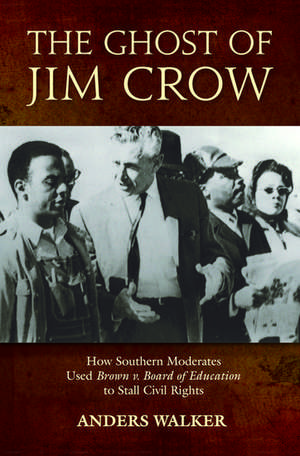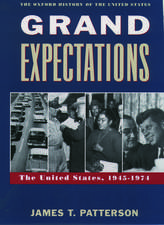The Ghost of Jim Crow: How Southern Moderates Used Brown v. Board of Education to Stall Civil Rights
Autor Anders Walkeren Limba Engleză Hardback – 13 aug 2009
Preț: 328.28 lei
Preț vechi: 375.00 lei
-12% Nou
Puncte Express: 492
Preț estimativ în valută:
62.81€ • 65.76$ • 51.98£
62.81€ • 65.76$ • 51.98£
Carte tipărită la comandă
Livrare economică 26 martie-01 aprilie
Preluare comenzi: 021 569.72.76
Specificații
ISBN-13: 9780195181746
ISBN-10: 0195181743
Pagini: 256
Dimensiuni: 236 x 155 x 23 mm
Greutate: 0.5 kg
Editura: Oxford University Press
Colecția OUP USA
Locul publicării:New York, United States
ISBN-10: 0195181743
Pagini: 256
Dimensiuni: 236 x 155 x 23 mm
Greutate: 0.5 kg
Editura: Oxford University Press
Colecția OUP USA
Locul publicării:New York, United States
Recenzii
Walker has made an important addition to the scholarship of the civil rights era. The Ghost of Jim Crow is brief, exhaustively documented...and still fresh enough to be relevant.
Notă biografică
Ph.D., African American Studies and History, Yale University. JD, Duke University














